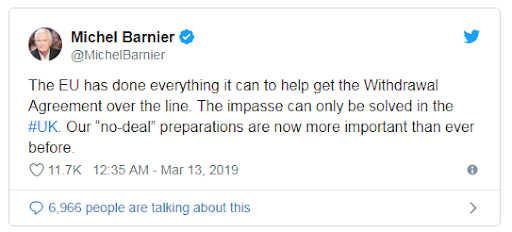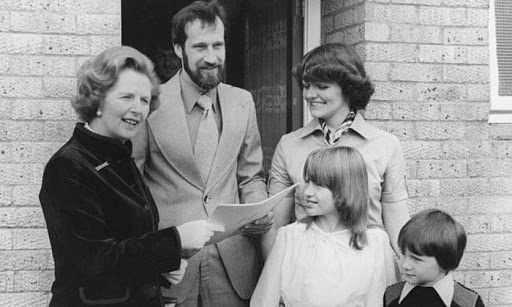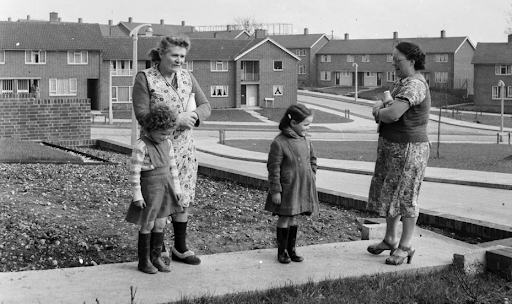Appraising the genesis of the UK housing crisis through a chronological lens to understand why the UK has a housing shortage.
The entirety of the UK, together with its housing market, is currently in the midst of a gruesome paradigm shift and …. NO
It cannot just be attributed to BREXIT alone!!!

More than 2 million Britons reside in Europe at this point; enjoying their cuisines, idolising their neighbours, and relishing the various elements of their diverse culture.
Yet, it is a well-known fact that the relationship between the European Union (EU) and the British Parliament has been a long and arduous one, not devoid of hiccups. Most of the major wars in our recent history have been with European states, such as the Battle of Waterloo with France and World Wars with Germany.
Maybe it is suspicion that deters us from trusting one another?
However, the above statement is counterintuitive as well. France and Germany, once considered our mortal enemies, are now perceived by us as our closest allies nearly a century later (YouGov, 2015)!!!
What is it then that fosters TRUST in relationships between nations and how INFLUENTIAL can it be?
You guessed it right, it is only in mutually beneficial relationships that trust is sustainably fostered whereas helping others in need garners further admiration.
During many such instances where great needs have risen, requiring the preservation of our shared common purpose with EU, great achievements were made and democracy was instituted as a norm in all corners of the earth.
However, with the current pledge to exit the European Union, it is our closest allies that would bear the heaviest burdens; presently estimated costs of Brexit at $67 billion for Germany (Pandey, 2019) and $27 billion for France (Barigazzi, 2018) – all for the sake of realising political elitism, economic superiority, and untarnished sovereignty as believed by leading geopolitical forecasters such as George Friedman and Michel Barnier (Mauldin, 2016).
Sovereignty, Economic Prosperity, and Political Elitism
But is it the sovereignty of our land that we as a nation are trying to secure, a commodity that has rapidly grown to be too expensive for our forthcoming generations, witnessing an increase of 173% precisely in the last 20 years (BBC, 2018).
About 40% of young adults cannot afford to buy one of the cheapest homes in their area even with a 10% deposit
Institute of Fiscal Studies (BBC, 2018)
Maybe it is the economic prosperity of the United Kingdom that we are trying to stabilise, where 49% of the population with a deposit cannot buy a house even after borrowing “four and a half times their salary” (BBC, 2018, par. 3).
The average pay of 25 to 34 year olds has grown by just 19% in the last two decades
Institute of Fiscal Studies (BBC, 2018)
Or is it all done for the sake of political elitism, currently powerless in empowering the citisens it represents through the merits of democracy.
There is now an overwhelming consensus amongst both the public and politicians that there is a housing crisis in this country and one that requires immediate attention.
David Orr – Chief Executive of NHF (Jefferies, 2015)
Mr. David is talking not about Brexit. Instead, he is imploring our warring political factions to find common ground.
Sorting out our backyard after inflicting trading sanctions upon the nation does make sense (something we didn’t imagine would be levied on us if we exited the EU).
Brexit can most likely worsen the situation but it is far from being a primary root cause for all our housing predicaments.

Presently, Brexit is actively debilitating the public perception of the masses concerning housing insecurities, particularly forcing the youth to embrace life without a house to call their own.
Is there ANY HOPE?
We at Zisk Properties surely believe so. Here is why…
Stages of the UK Residential Saga
If we attempt to untangle the events that took place within the housing market in the last 100 years, it becomes apparent that the entire residential saga can be categorised into 5 stages.
First Stage
The origins of the first stage can be traced back to World War I and World War II – The only instances within our recent history wherein housing supply adequately supported our ever-rising property demand.
The primary reason behind the rapid acceleration was the facilitation and incentivisation of the builders by the government to spur horizontal growth within all major UK cities, leading to “suburban development of green fields” (Moore, 2016, par. 1).
Second Stage
The second stage marks the debilitation of housing equilibrium due to the delimitation of “local authorities’ power” to build houses; designed, approved, and issued by none other than — Margaret Thatcher (Moore, 2016, par. 2).

In 1983, a survey conducted by the British government to measure social attitudes, specifically homeownership, revealed that 53% of the citizens between the ages of 55 – 64 owned residential properties (Dorling, 2015).
During this era, most of the people either relied on council homes (i.e. public housing made available by the local authorities in the UK) or directly renting properties privately. As a result, mortgages were made widely available by the Conservative Government, under the guise of the Right to Buy scheme.
This move did increase the numbers of property owners with mortgages but at the same time introduced a steady decrease in socially rented accommodations.
Seems Familiar?

Third Stage
The third stage begins through the onset of the roaring ’90s, before which a recession ensured a swift demise of the mortgage driven boom (PwC, 2015). Predominantly the baby boomer segment of our society experienced a decline in social rented housing and increase in owner-occupied tenures during this period (i.e. “25% in 1990 – 30% in 2002”) (PwC, 2015, p. 2). Council homes continued to be in high demand, however, few replacements were built in return.
As housing continued to get scarcer with the passage of each decade, the price started to surge slowly but quite surely later on.
The blame for not replacing housing faster than it was being utilised, especially council homes, was conveniently placed upon restrictive planning procedures prevalent within the public dominion.
The government feared excessive land eating and did not want to indulge in the reinstitution of the unsustainable sprawl of the 1930s. self-interest of developers came into the limelight due to limited competition.
Builders simply did not want to compete against themselves as they did not want to flood the market and expose themselves to further risk, especially after the devastating housing market crash of ‘08.
Propelling the world to embrace the coming of our generation, the famed Generation Rent.
Continue onwards to Part II of this series to understand more about the 4th and the 5th Stages: The UK Housing Crisis – Part 2: Hope for UK’s Generation Rent?
References
Barigazzi, J. (2018). Where Brexit will hurt most in Europe. Retrieved from https://www.politico.eu/article/brexit-impact-on-european-regions-revealed-by-eu-report-phase-2-negotiations/
BBC. (2018). Young people with deposits still cannot buy homes. Retrieved from https://www.bbc.com/news/business-45776289
Beckett, A. (2015). The right to buy: the housing crisis that Thatcher built. Retrieved from https://www.theguardian.com/society/2015/aug/26/right-to-buy-margaret-thatcher-david-cameron-housing-crisis#img-1
Dorling, D. (2015). ‘Generation rent’? We’ve been here before. Retrieved from https://www.theguardian.com/commentisfree/2015/feb/18/generation-rent-home-ownership-generation-britain
Jefferies, T. (2015). Politicians are worried about challenges “Generation Rent’ faces affording property in their constituencies, survey finds. Retrieved from https://www.thisismoney.co.uk/money/mortgageshome/article-3066305/Politicians-worried-challenges-Generation-Rent-face-buying-homes-areas.html
Mauldin, J. (2016). 3 Reasons Brits Voted for Brexit. Retrieved from https://www.forbes.com/sites/johnmauldin/2016/07/05/3-reasons-brits-voted-for-brexit/#34f423201f9d
Moore, R. (2016). Housing in crisis: council homes were the answer in 1950. They still are. Retrieved from https://www.theguardian.com/cities/2016/apr/30/housing-crisis-council-homes-are-the-answer
Pandey, A. (2019). Brexit to cost billions in income losses across Europe. Retrieved from https://www.dw.com/en/brexit-to-cost-billions-in-income-losses-across-europe/a-47991332-0
PwC. (2015). UK housing market outlook: the continuing rise of Generation Rent. Retrieved from https://www.pwc.co.uk/assets/pdf/ukeo-section3-housing-market-july-2015.pdf
Walsh, A. (2019). Brexit vote: European Union closes ranks in response. Retrieved from https://www.dw.com/en/brexit-vote-european-union-closes-ranks-in-response/a-47883473-0
YouGov. (2015). Who does the British regard as allies? Retrieved from https://yougov.co.uk/topics/politics/articles-reports/2015/10/14/who-do-british-regard-allies




